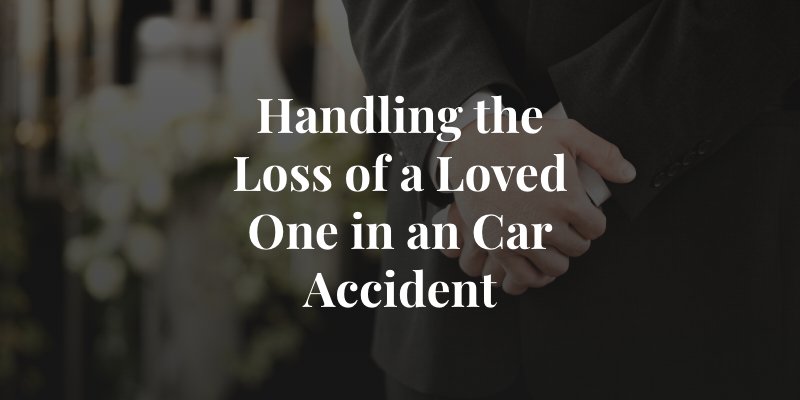There is nothing as terrible as the news that someone you love has passed away in a car accident. Losing someone in this unexpected manner can cause extreme heartbreak and emotional pain. Coping with the loss and adjusting to life without your loved one can feel impossible. However, resources are available to help you with the grieving process, while an accident attorney can handle the legal aspects of recovery.

Coping With Grief After a Fatal Car Accident
There is no wrong or right way to grieve. Do not compare your process or timetable to someone else’s. You may or may not experience the “five stages of grief.” Not all grief looks the same. Accept everything that you are feeling and give yourself grace as you navigate this uncharted territory. Do not try to stifle your emotions; as the saying goes, “you must feel to heal.” There does not always have to be a solution to the pain you are feeling. Express any anger, sadness, pain or other emotions you are feeling as they come. Do not feel embarrassed. Allow yourself to feel it and move through it knowing that you can and will come out on the other side emotionally whole.
Talk to Someone
While your grief journey is entirely unique to you, this does not mean you have to go through it alone. It can be important to your healing process and mental wellness to surround yourself with people who understand as you cope and grieve. Confide your thoughts and feelings in other family members who share the same grief as you do, or friends you can count on to be compassionate.
Seek Support
If the support of friends and family is not enough, don’t hesitate to get help from a professional. Therapists and psychiatrists are available in your city who specialize in grief counseling. Simply talking about your experience and loved one can help you feel like the burden of grief has lessened slightly. A therapist may be able to give you tools and exercises you can use to cope with the loss in healthy and productive ways. You can try Eye Movement Desensitization and Reprocessing (EMDR) therapy, for example, which can help you detach from negative self-beliefs, such as blaming yourself for the deadly car accident, having survivor’s guilt or thinking that you could have done something differently to save your loved one’s life. You can also find solace in a local grief support group. Attending weekly meetings can give you something to look forward to. Listening to others who have been through what you’re feeling and sharing your own story can help you find strength and perspective. Self-help books can also be helpful on your journey, such as Understanding Your Grief by Alan D. Wolfelt or It’s OK That You’re Not OK by Megan Devine.
Memorialize Your Loved One
It can be healing to memorialize your loved one in some way. This can mean a traditional memorial, celebration of life service or funeral – but it can also mean doing something more personal to you and your relationship with the loved one. It may help to plant a tree you can visit when you miss them, for example, or start a foundation in your loved one’s name. These efforts can keep your loved one’s memory alive and help you find comfort and closure.
